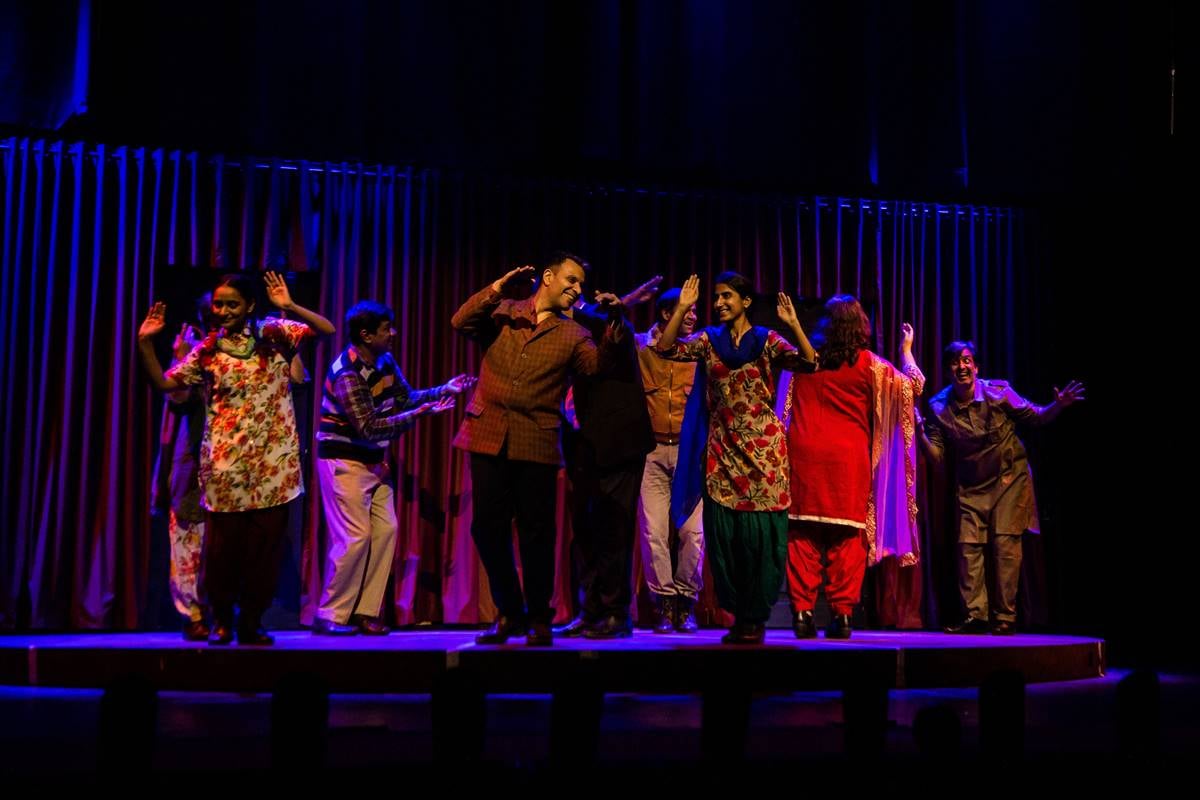📣 For more lifestyle news, click here to join our WhatsApp Channel and also follow us on Instagram
‘Anybody who has a spine and can stand against an authoritarian voice has been attacked all through history’: Atul Kumar
Theatre director Atul Kumar on fear and courage, his new play Baaghi Albele, and bringing down the curtains on Piya Behrupiya
 Atul Kumar says that it was only in the last few years when comedians, writers, intellectuals, and journalists began to get arrested or harassed
Atul Kumar says that it was only in the last few years when comedians, writers, intellectuals, and journalists began to get arrested or harassed On the day that a library of 4,500 books — several of which were handwritten — at the 113-year-old Madrasa Azizia was burnt down in Biharsharif, a group of theatre artistes, including director Atul Kumar, were rehearsing a play called Baaghi Albele in Mumbai. In order to “stretch the imagination of the audiences with the performance”, they had a plot in which the government issues a diktat that art must be eradicated, artists killed, libraries burnt, museums destroyed, and the money saved directed towards the public good. As news of the communal violence in Bihar came in, the performers realised that reality had outpaced their fictional story.
“Anybody who has a spine and can stand against an authoritarian voice has been attacked all through history. Oppression is not happening for the first time. It has happened in so many countries so many times,” he says. Kumar is one of the artists who has been attacked on social media and outside it. “It is natural to be scared when people threaten you directly. Inside me, there are inbuilt scissors that constantly censor what I do but also a baaghi (rebel) who continues to struggle against the scissors… In Baaghi Albele, too, the protagonists are clever, scheming against authorities and playing games but, deep inside, they are very, very scared. All they want to do is escape the mayhem. I often question how far I should be going in provoking our audiences and taking risks,” he says.
 One of the country’s most prolific and lauded theatre directors, Kumar is also one of the few who can entertain houseful crowds and keep them coming back.
One of the country’s most prolific and lauded theatre directors, Kumar is also one of the few who can entertain houseful crowds and keep them coming back.
Baaghi Albele, which opened at the Royal Opera House and ran at Prithvi Theatre in Mumbai in February, will be staged at the Capital’s Kamani Auditorium on May 13 and 14. It is based on a 1942 film To Be or Not to Be by Ernst Lubitsch in which an acting troupe in Nazi-occupied Poland gets caught between a Polish soldier, a German spy, and Adolf Hitler’s corrosive rule. Kumar first watched the film as a student in Delhi when Shakuntalam theatre at Pragati Maidan used to screen World Cinema for Rs 2 a ticket. Kumar, who first came on stage as a 14-year-old in a play at St Xavier’s School, Delhi, and went on to create experimental modern drama in the ’80s and ’90s with his young group, Chingari, immediately visualised To Be or Not to Be as a stage adaptation even though no play script existed at the time.
He says that it was only in the last few years when comedians, writers, intellectuals, and journalists began to get arrested or harassed and his friend received an FIR for an art project at a festival he was curating that Kumar heard the call of the film again. He adapted the story into a local setting of Punjab, called it Baaghi Albele, and turned the protagonists into local theatre actors who find themselves in the thick of things that involve dissenters, an academician, a policeman, a secret list of names and an oppressive High Command.
The languages of the play are Hindi and Punjabi. “We are not telling people which era the play is set in because we are talking of authority and oppression, which is timeless. As artists are being attacked, just the act of survival for the theatre company in Baaghi Albele becomes an act of dissent,” says Kumar.
One of the country’s most prolific and lauded theatre directors, Kumar is also one of the few who can entertain houseful crowds and keep them coming back. Popularly, he is identified with Piya Behrupiya, an adaptation of William Shakespeare’s Twelfth Night as a nautanki — but Kumar’s oeuvre covers a wide arc. In recent years, her has made An Oak Tree, a pandemic story about a man whose daughter has died in a car accident; Aaeen, which revolves around the tenets of the Indian Constitution; and Taking Sides, about the denazification of Germany by the Allies. Coming up is Mountain Language by Harold Pinter, about a group of prisoners whose mother tongue has been banned.
His plays are increasingly becoming radical and political, but he finds echoes in the performers he meets. The actors and crew of Baaghi Albele, too, “already had angst and anger and wanted to raise their voices against the authoritarian rule”. “I feel it is a personal need to make these anti-establishment plays. When was the last time a theatre performance or movement was able to change something politically or socially in our country?” he asks.
It is unlikely that Kumar will be making another Piya Behrupiya anytime soon. Like Baaghi Albele and Aaeen, his plays have become hard-woven political comedies, satires that only a discerning member of the audience will grasp. Kumar believes that a lot can be said when people are being made to laugh. “We use this as a tool to put our political and angry thoughts, sometimes fearful thoughts, in an auditorium,” he says. Piya Behrupiya, the play that has become a classic, is winding up in July with a national tour to Delhi, Mumbai, Pune, Bengaluru, Ahmedabad, and Vadodara. It is the same cast of 15 that has, over the years, become friends and some have got married and had children. “Together, we will say bye-bye to this beautiful journey,” says Kumar.
📣 For more lifestyle news, follow us on Instagram | Twitter | Facebook and don’t miss out on the latest updates!
📣 For more lifestyle news, click here to join our WhatsApp Channel and also follow us on Instagram





- 01
- 02
- 03
- 04
- 05























